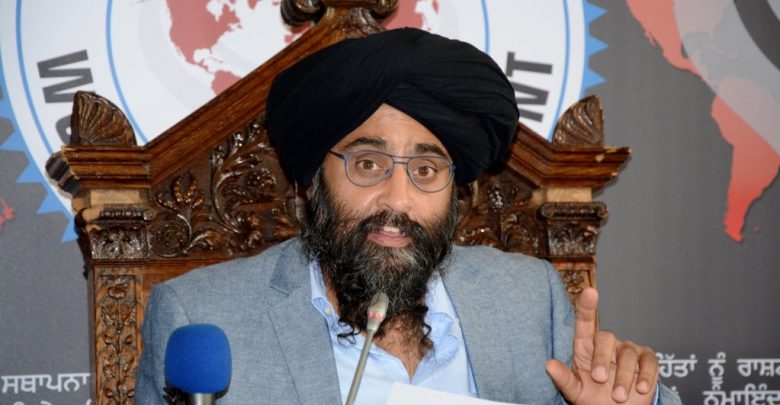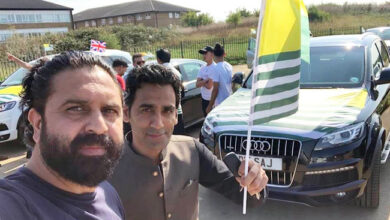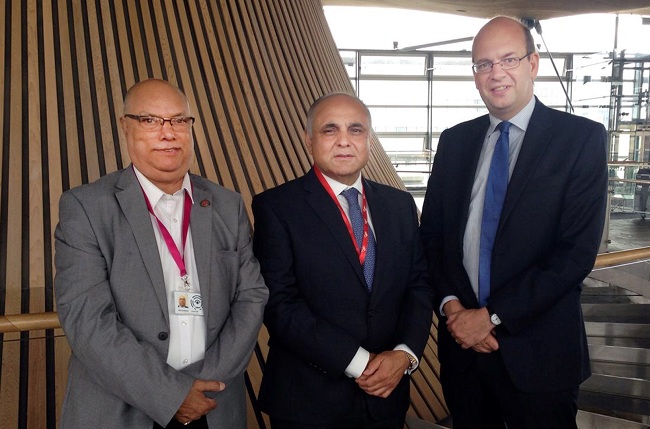UK
India’s Continued Unilateralism in Kashmir Deepens Democratic Deficit and Threatens Catastrophic Conflict

London: The Indian government’s infamous unilateral steps taken in August 2019, being the revocation of the limited autonomy for Kashmir and the decision to strip the region of even the most basic form of ‘statehood’ was an audacious move that was rightly condemned by right thinking people across the world. As an affront to the dignity of millions of Kashmiris, as a challenge to the UN’s prescription of a settlement based on the self-determination of the people and as a sheer act of provocation aimed at neighbouring Pakistan and China, it was an incredibly dangerous move. Paralysis on the part of the international community, the further deployment of tens of thousands of additional troops in Indian controlled Kashmir, and the spineless response of may so-called democrats in India itself has allowed – so far – the right-wing Hindutva inspired government in Delhi to avoid the backlash that many predicted.
Such ‘fortune’ was always going to be exploited by the Modi government and on 31 March 2020 it took a further unilateral step. Again without any mandate from the people in the region; again it will deepen the crisis. A new law was adopted that allows non-state subjects to claim ‘domicile’ status which will entitle them to property and employment rights in a way that will, over time, alter the demographics of the region. Deliberately so, as that will jeopardise the chances of an authentic plebiscite to determine the wishes of the actual Kashmiris as a means of settling the conflict.
It is a simple tactic and one that poses a further serious challenge to the people living in the region and to those elsewhere that value a rules-based international order. It has been rolled out cynically under the cover of the international crisis over the coronavirus pandemic, so that not only the people of Kashmir will be unable to react but likewise with those in the international community, whose attention is almost exclusively focused on the Covid-19 nightmare.
Modi is still playing with fire and it is surely a matter of time before the Kashmiri population demonstrates mass civil disobedience to the diktats of a colonial power, which is devoid of any democratic mandate. It is a tragedy that many thousands of innocent men, women and children will then be targeted by a brutal army of occupation that has a record of suppressing self-determination struggles in Kashmir, Punjab and in the north eastern regions – at the cost of hundreds of thousands of lives. The horror of that outcome must be avoided and the responsibility lies with the international community to intervene in case India resorts to such genocidal tactics. The UN’s ‘Responsibility to Protect’, formulated after the catastrophic conflicts in Rwanda and Yugoslavia, was conceived for exactly such circumstances; it is a duty on ALL states to act to prevent genocide. That may include diplomatic, economic and ultimately even military measures. All eyes are on key states to discharge that duty. Let us hope we never again reach that genocidal state of affairs. Let us hope that such a scenario will not trigger war between nuclear armed states in which millions in South Asia and beyond will perish.
The only real peaceable solution to the conflicts in Kashmir, as well as in Indian-occupied Punjab and regions such as Nagaland, Assam and Manipur, is for India to finally accept that that the right of self-determination applies to the nations whose territories it controls. That is the position under international law and no amount of unilateral Indian legislation will ever change that. Article 1 of the 1966 Covenants on Human Rights sets out that right and is accepted across the civilised world, except India has officially rejected it by way of a formal ‘reservation’ lodged by it at the UN. The UN has asked it to withdraw the reservation, but it refuses to do so. The terrible consequences of that position have been experienced by Sikhs, Kashmiris and others for decades. It is time the UN took action over such gross breaches of fundamental human rights, if it is serious about its own pronouncements.
It was encouraging to see that the UN High Commissioner on Human Rights took the unusual step of recently intervening in an Indian Supreme Court case concerning Modi’s (unrelated) controversial amendments to India’s citizenship rules – based on their clear breach of internationally accepted human rights standards. This will hopefully be a signal to India that other interventions will follow in case it continues to fall foul of basic humanitarian law. It is puzzling that UN member states have been unwilling to pursue India via the international legal system for crimes of genocide as well as the denial of self-determination – that must change.
Whether we get there after further appalling bloodletting by India or via effective international intervention to put the Hindutva project back in its box, colonial rule will inevitably end one day in the affected regions. Modi and his henchmen are determined to stick to the course they have plotted; the question is whether the rest of us have the vision and the moral courage to stop them. The moral, political and legal basis for action is there; it is time to use it.
Ranjit Singh Srai
Administrative Secretary, Parliamentarians for National Self-Determination





